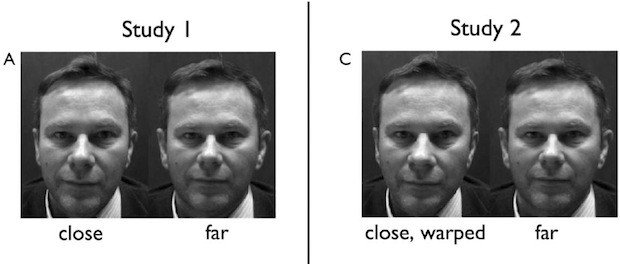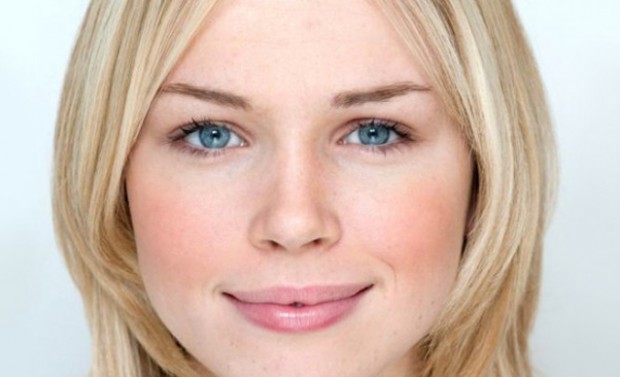Your makeup, hair, and clothing look fabulous, and the lighting is just right. But that neatly planned headshot or cute self-pic may ignore an important factor in how people judge trustworthiness, attractiveness, and competence: distance from the camera. “It turns out that faces photographed quite close-up are geometrically warped, compared to photos taken at a larger distance,” says graduate student, Roonie Bryan, who published the findings soon to be quoted in every campaign and cosmetic shop in the country in this week’s issue of open-access journal, PLoS ONE.
It has long been known that consciously imperceptible differences in facial perfection, such as Brad Pitt’s gorgeously symmetric face, are a cognitive marker for beauty. The new science, for instance, helped unearth newly minted model, Florence Colgate, who was found to have the most “scientifically” beautiful face in an international search.
The new findings show that the facial distortion caused by pictures taken too close to the lens can cause similar distortions from perfection (neurologically speaking). The researchers asked participants to play hypothetical monetary trust games and conduct ratings of faces that were artificially distorted to mimic a lens at various lengths from a person’s face (so that they could control for things like lighting). Consistently, the researchers found, faces too close to the lens caused negatively perceived distortion.
Before readers freak out below in the comments section, I am not saying whether this is biologically determined or whether it’s healthy for a society to be beauty-obsessed. Just, that if you spend some time planning a picture, distance is one thing you may want to take into account, according to this interesting piece of research.
[Via ScienceDaily]

